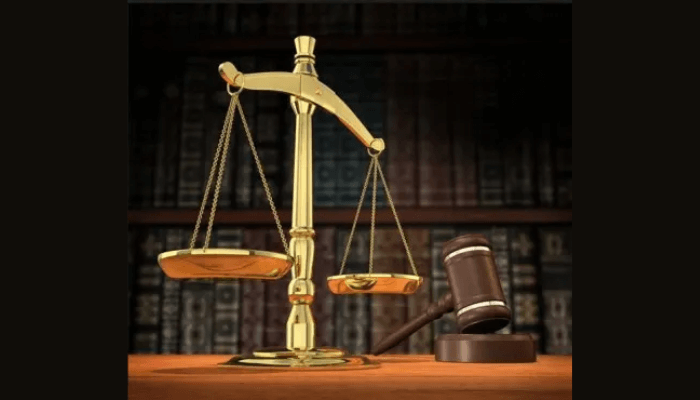Justice on trial: Judicial rascality and political interference
There are moments when a country hears an uncomfortable truth with piercing clarity. This is one of them. In late August, three sober voices, former Presidents Olusegun Obasanjo and Goodluck Jonathan, and the Sultan of Sokoto, said aloud what millions whisper: justice in Nigeria is too often negotiated, not delivered. Their warning was not a rhetorical flourish; it was an urgent call to action, an indictment of a system drifting from adjudication to auction.
Call it by its name: judicial rascality. It is the culture of lawlessness within the law—forum shopping across friendly courts; midnight ex parte orders that overturn broad daylight realities; serial, frivolous adjournments deployed as weapons; contradictory injunctions from courts of coordinate jurisdiction; and the casual defiance of hierarchy and precedent. It is bail as a favour, not a right. It is a judge who becomes a partisan tactician, a courtroom that behaves like a campaign secretariat, and a docket that bends for the powerful and breaks the poor. Once this conduct becomes routine, courts are no longer sanctuaries of order; they are markets of outcomes.
“Meanwhile, professional incentives, from billable hours to prestige matters, reward prolongation over resolution.”
The consequences are immediate. Entrepreneurs now budget for “friction”—the cost of adjournments, the premium for speed, and the price of a desired order. Politicians redirect strategy from persuading voters to courting judicial gatekeepers. Investors read our courts like risk charts: where contract enforcement is uncertain and orders are optional, the cost of capital rises, timelines balloon, and innovation flees. Jonathan’s caution that capital runs from places where justice is for sale is not a political jab; it is arithmetic.
Yet this is only half the damage. When citizens learn that knowing the judge is more valuable than knowing the law, the social contract begins to tear. People retreat from courts into private “arrangements” that soothe the moment but corrode the republic. A widow can wait years to be heard on a small land case, while a developer’s injunction materialises overnight—the poor pay in humiliation and time; the rich pay in fees. One buys results.
The other buys despair.
How did the temple sour? Political interference did not creep in; it marched in—through appointments weaponised by loyalty tests, through strategic postings, and through the quiet shepherding of “sensitive” cases to particular hands. Oversight is slow, opaque, and rare enough to embolden impunity. Underfunding and insecure welfare make virtue lonely. Complex procedures reward obstruction. Data is missing—no reliable nationwide tracking of case ages, adjournment counts, clearance rates, or levels of compliance with orders. In the absence of measurement, reform becomes theatre. Meanwhile, professional incentives, from billable hours to prestige matters, reward prolongation over resolution.
Read also: The judiciary and the future of Nigeria’s democracy
Elections lay this crisis bare. On paper, timelines are compressed; in practice, they stretch elastically for those who can pay the rent of delay. Strategic injunctions become the real campaign; judgements begin to look like political settlements. In commercial disputes, the ease with which enforcement can be stalled tells investors everything they need to know. In public-interest cases, government obedience to orders often tracks political convenience.
The message to citizens is devastatingly consistent: the law is negotiable.
There is a darker seam: executive capture. Whispers become headlines—of inducements dressed up as “courtesies”, of land allocations in prime districts to jurists expected to sit above temptation. Even as allegations, such stories damage the court more than any angry editorial could. A judiciary that accepts gifts from the political class acquires a patron; a patron always expects returns. This is institutional corrosion masquerading as hospitality. It must be named and repudiated.
But diagnosis is not destiny. If this moment—punctuated by the frank words of two former presidents, a revered Sultan, and a profession gathered in Enugu—is to be our inflection point, we must move from applause to architecture.
First, radical transparency. Publish daily cause lists with reasons for adjournment. Set and display time standards by case type in every courtroom.
Where ex parte orders are unavoidable, impose ultra-short return dates and mandatory peer review. Require early case-management conferences, cap adjournments, and sanction counsel who weaponise delay. Digitise the basics—e-filing, e-service, and virtual hearings where appropriate—and build a searchable, open judgements database. None of this is novel; it is simply managerial courage.
Second, discipline with teeth—and with light. Fast-track complaints against both Bench and Bar; publish outcomes promptly. Make procedural abuse career-limiting. Expand commercial and small-claims tracks with 90–180-day disposition targets and shield those targets from procedural sabotage.
Rebuild ethics from routine to rigorous: continuing legal education that links credit to case-management results and client feedback, not mere attendance. Make delay expensive and integrity rewarding.
Third, depoliticise the pipeline. Transparent criteria, diverse panels, and public-facing scorecards must govern appointments and promotions.
Guarantee baseline, multi-year funding insulated from executive whim—paired with independent audits, user councils, and performance dashboards.
Improve judicial welfare, remuneration, security, and continuous training, because accountability without dignity breeds cynicism, and poverty is a poor guardian of virtue. Protect whistle-blowers, witnesses, and judges in sensitive matters. Simplify pleadings; curtail interlocutory appeals that incentivise fragmentation over resolution.
Ultimately, this is a moral and economic choice. A country that lets judicial rascality and political interference define justice will find everything else too expensive, credit, jobs, peace. A country that treats justice as a public good will discover dividends, investment, innovation, and social calm. We have, improbably, a rare consensus that the old normal is unacceptable. The task now is to translate that consensus into rules we enforce, timelines we meet, and a culture of restraint strong enough to outlive today’s actors. The robe does not confer integrity; it demands it. And a republic that remembers this will not need to buy justice, because it will finally be able to trust it.

